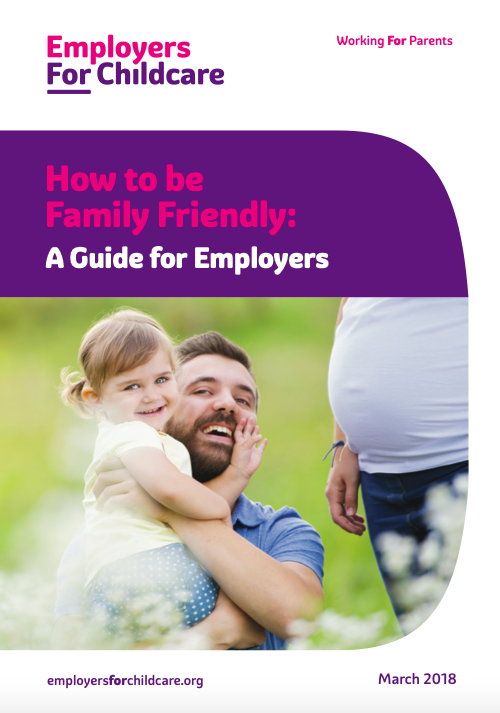Family Supports
Description
The company offers employees and contractors paid maternity and paternity leave (including for non-biological parents) as well as parental benefits. Workers are able to take parental leave to care for small children as well as leave for elder care. They have access to adequate compassionate leave for bereavements or to care for a family member with significant risk of death. The company offers flexible work and/or remote work arrangement where practicable, to allow workers to more easily meet their family obligations.
Share this Subissue on:LinkedIn
Resources
How to be Family Friendly: A Guide for Employers
Studies show that employees with a supportive employer are most satisfied with their work-life balance. This toolkit from Employers For Childcare introduces an 8-step process (with supporting considerations and questions) that will help you to develop and implement a family-friendly workplace culture.
Work + Family Researchers Network
The Work + Family Researchers Network has compiled a large repository of resources, organisations, and projects that are focused on supporting work-family balance. The repository is organised into eight sections based on their origin, including universities and corporations. is ideal for decision makers within organizations who would like to familiarize themselves with both the benefits and steps of implementing workplace flexibility practices.
Bridging the Gap: Exploring the Intersection of Workforce Development and Childcare
Preparing for employability (such as through education and training) and finding suitable jobs can be challenging, and especially for low-income parents. This research report from the Urban Institute can help you better understand the workforce development challenges faced by those rearing and supporting families. Although it is written from the US public sector perspective, it highlights the challenges and opportunities at the intersection of child care systems and workforce development programs, and contains a number of insights that are broadly relevant to organisations seeking to provide training or educational opportunities to their employees. This resource will be of particular value to HR professionals and leaders responsible for employee development.
Redesigning the workplace to be family-friendly: What governments and businesses can do
This short article from UNICEF calls upon governments and business to invest in family-friendly policies that can help parents to provide the best possible start in life - all while boosting productivity, retention, and women's empowerment. The article provides a high-level explanation of the benefits to children, women, businesses, and the economy at large, and links to a range of evidence briefs on the benefits of family-friendly policies and other resources for employers.
Family-Centered Approaches to Workforce Program Services
This research report from the Urban Institute can help you better understand the workforce development challenges of low-income parents. Although it is written from the US public sector perspective, it contains a number of insights that are broadly relevant to organisations seeking to provide training or educational opportunities to their employees. For instance, it covers the implication of childcare on workforce development and the related challenges and opportunities.
A Guide for Corporate Leaders on Paid Leave Policies
This short guide from Just Capital provides evidence-based leading practices on paid leave that can help you to improve worker well-being, resilience, and performance. It summarises the business case for paid leave, provides an overview of paid leave offerings from among Russell 1000 companies, provides industry insights into paid leave benefits, and showcases examples of leading practice. This guide will be especially beneficial for HR, sustainability, and strategy professionals, as well as managers, and senior leaders.





